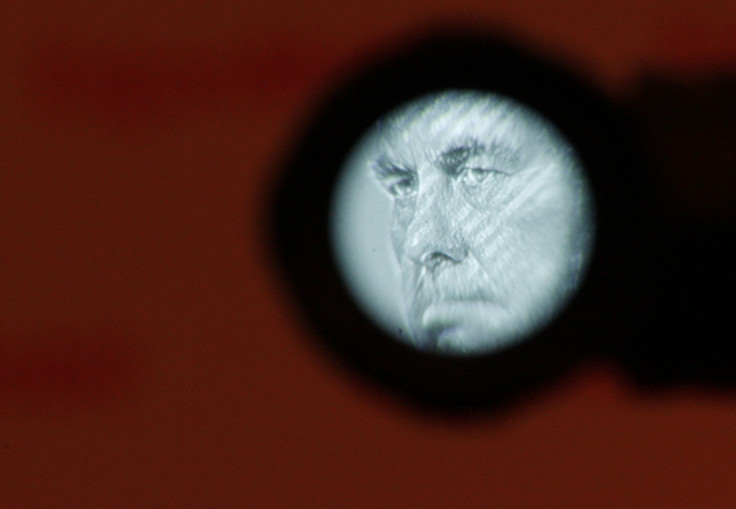Donald Trump wants swagger in his White House – Rex Tillerson looks like a solid hire
The president-elect values business savvy over the status quo.

Donald Trump's decision to nominate Exxon CEO Rex Tillerson for Secretary of State illustrates a few interesting facts, though very few of them relate to Tillerson himself. At this point, we don't really know much about him, and will simply have to wait for his confirmation hearings for a more detailed picture to emerge.
He comes with the strong endorsements of Condolezza Rice and Bob Gates, and evidently has a strong grasp of geopolitics to go with his administrative competence (as any Big Oil CEO must). For now, these should allay worries that his business and personal connections to Vladimir Putin are necessarily disqualifying.
There's much more to be learned, however, from a study of the process that led to Tillerson's selection, which lends insight into Trump's decision-making style, a style that is now of inestimable importance. Trump did not know Tillerson personally, and did not originally seriously consider him for the role.
It seems that Gates and Rice recommended Tillerson to Vice President-elect Mike Pence, who in turn floated the idea to Trump, who then met with Gates and Rice to discuss the notion further, before scheduling two meetings – no more – with Tillerson himself. Trump instantly found Tillerson to his liking; a confident businessman with an authentic swagger. Just like that, a hugely consequential decision that had been the focus of weeks of gossip had been made.
A number of themes emerge here, and the first is the confidence that Trump places in his closest advisers. A feature of the campaign was his willingness to put unconventional figures in positions of serious responsibility, and back them despite a great deal of criticism. From his primary campaign manager Corey Lewandowski to spokeswoman Katrina Pierson to Steve Bannon, Trump stuck with his hires through considerable controversy. Sometimes the hires are less controversial and more completely unknown, such as campaign press secretary Hope Hicks, whose qualifications for the role at the time were very scanty.
A second theme is Trump's apparent faith in individual merit over ideology. He seems to have genuinely considered Mitt Romney for the State role, despite their enormous personal and ideological differences, based on a few successful dinners. The Tillerson nomination seems to rest just as much on Trump's faith in Tillerson's virtue than any ideological concordance (not that Trump probably has much of a clearly defined ideology in the foreign policy sphere).
It's also interesting to note that he seems to be deliberately setting up a White House brains trust where there are clearly defined roles for contrasting voices. Chief of staff Reince Priebus broadly represents the established GOP, while Senior Counselor Steve Bannon represents the forces of nationalist populism that made up Trump's most ardent support. Their clashes will no doubt be ugly at times, but will also give President Trump straightforward and sharply defined policy and personnel choices to make.
A third and very striking feature of the SecState selection process was Trump's extraordinary willingness to tolerate public dissent. When Romney's nomination looked likely, Trump's former campaign manager Kellyanne Conway took to Twitter to attack Romney and highlight the depths of opposition to his opposition amongst Trump's base.
Despite this public show of near-disloyalty, Trump seemed curiously unruffled. There are a few different ways to read this, but the simplest is Trump's own explanation; that she asked if she could go public with her thoughts and he encouraged her to do so, not because they necessarily mirrored his own but because but he finds public airing of debate valuable when he is unsure of the right course.
Taken together, the data points to a decision style that prioritises instinct (shaped by debate amongst subordinates) over intense personal reflection. No one has ever accused Trump of having a long attention span. No one is ever likely to. There are, however, other methods of arriving at correct decisions, and Trump's lifetime results in this domain are significantly better than you would expect from chance alone. The bureaucracy needs to adjust accordingly.
I suggest the signs are good that he has chosen well.
The CIA must realise that expecting Trump to read or listen to a daily briefing is pointless. These briefings are of perhaps dubious utility at the best of times, and it is likely that they partly serve the CIA's purposes more than those of the nation. The right approach is probably to cut down and simplify the information flow to Trump, whilst focusing on ensuring that those around him (Tillerson, Mattis, etc) are even more fully briefed than usual.
Trump's presidency will not be politics as usual. There will be a lot of off-message chatter and in-house public conflict amongst the rival factions in his court. The media should not read the tea leaves too deeply; this will not necessarily be a sign of mass incompetence, but partly a result of how Trump likes to operate.
Similarly, no one should be surprised when vital decisions are made very quickly. The rewards to such a strategy are great, but the risks are also evident. The quality of people around Trump is of absolutely paramount importance, far more so than a normal presidency. Tentatively, however, I suggest the signs are good that he has chosen well.
Andrew Sabisky is an independent research worker and writer.
© Copyright IBTimes 2024. All rights reserved.






